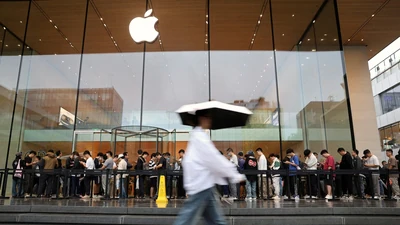Apple Announces $1 Million Bug Bounty to Strengthen AI Privacy System Security
Apple has started an enormous bug bounty program, inviting ethical hackers and cybersecurity researchers from all over the world to find any potential weaknesses in its artificial intelligence (AI) privacy systems. This program, which has a $1 million maximum award, demonstrates Apple’s dedication to strengthening the security and privacy of its products and services in a time when artificial intelligence is developing at an incredible rate.
Apple’s High-Stakes Bug Bounty: Why Now?
Apple’s move to raise its bug bounty to $1 million is a calculated move to growing privacy worries about AI-powered devices. Finding security vulnerabilities in Apple’s advanced AI privacy systems, including Face ID, Siri, and other machine-learning-based features that are essential to Apple’s operating systems, is the initiative’s main goal. This action is in line with Apple’s continuous goal to protect user information and uphold confidence as it further incorporates AI throughout its ecosystem.
Apple invites researchers to investigate vulnerabilities in iOS, macOS, iPadOS, watchOS, and tvOS through its bounty program. Payouts for several levels of discoveries are also offered; lower incentives are given for less important but however valuable discoveries. By using this strategy, Apple is able to quickly fix vulnerabilities and keep one step ahead of fraudsters who might use them to gain unauthorized access or compromise data.
Encouraging Collaboration in Cybersecurity:
Collaboration between Apple and the international cybersecurity community is encouraged via the company’s bug bounty program. Through the utilization of other researchers’ knowledge, Apple is able to obtain insights that might not be revealed through internal testing. The bounty ensures that every aspect of Apple’s AI-driven privacy protocols is examined and tested, covering both software and hardware flaws.
The substantial $1 million reward is an attractive incentive for researchers to pursue ethical hacking activities as opposed to looking for money on illegal markets. Additionally, it puts Apple up against other digital giants like Google and Microsoft, who provide comparable incentives to protect their platforms against ever-more-advanced attacks.
AI Privacy Challenges in a Connected World:
As artificial intelligence begins to enter Apple devices, protecting user privacy becomes both difficult and crucial. While Face ID and Touch ID manage biometric data that might result in serious privacy breaches if exploited, technologies like Siri process vast amounts of voice data. Apple’s proactive strategy, which aims to identify and fix flaws before they can be exploited, is highlighted by its bug reward program.
In order to develop features like on-device processing, which reduces the quantity of user data sent to the cloud, the company has made large investments in AI research. User security and autonomy are given top priority in Apple’s privacy policies, and this bug bounty is a crucial step in establishing those values.
Building Trust through Transparency and Security:
Another calculated move to gain and keep user trust is Apple’s bug bounty program. Transparency and proactive security measures have become crucial to maintaining customer confidence as digital companies come under increased criticism for their data privacy policies. Apple enhances its standing as a pioneer in user privacy by aggressively engaging the cybersecurity community and sharing information about its privacy policies.
The $1 million reward sets a standard for the IT sector and shows Apple’s dedication to transparently addressing privacy threats. Apple’s investment in proactive security measures not only safeguards its systems as AI technology advances, but it also reassures its global consumer base that privacy is still at the forefront of its innovation. This initiative marks a new phase in Apple’s continuous quest to strike a balance between strong privacy protection and technological developments, possibly leading the way for other tech firms to prioritize security and privacy in the face of AI’s rapid evolution.


Comments are closed.